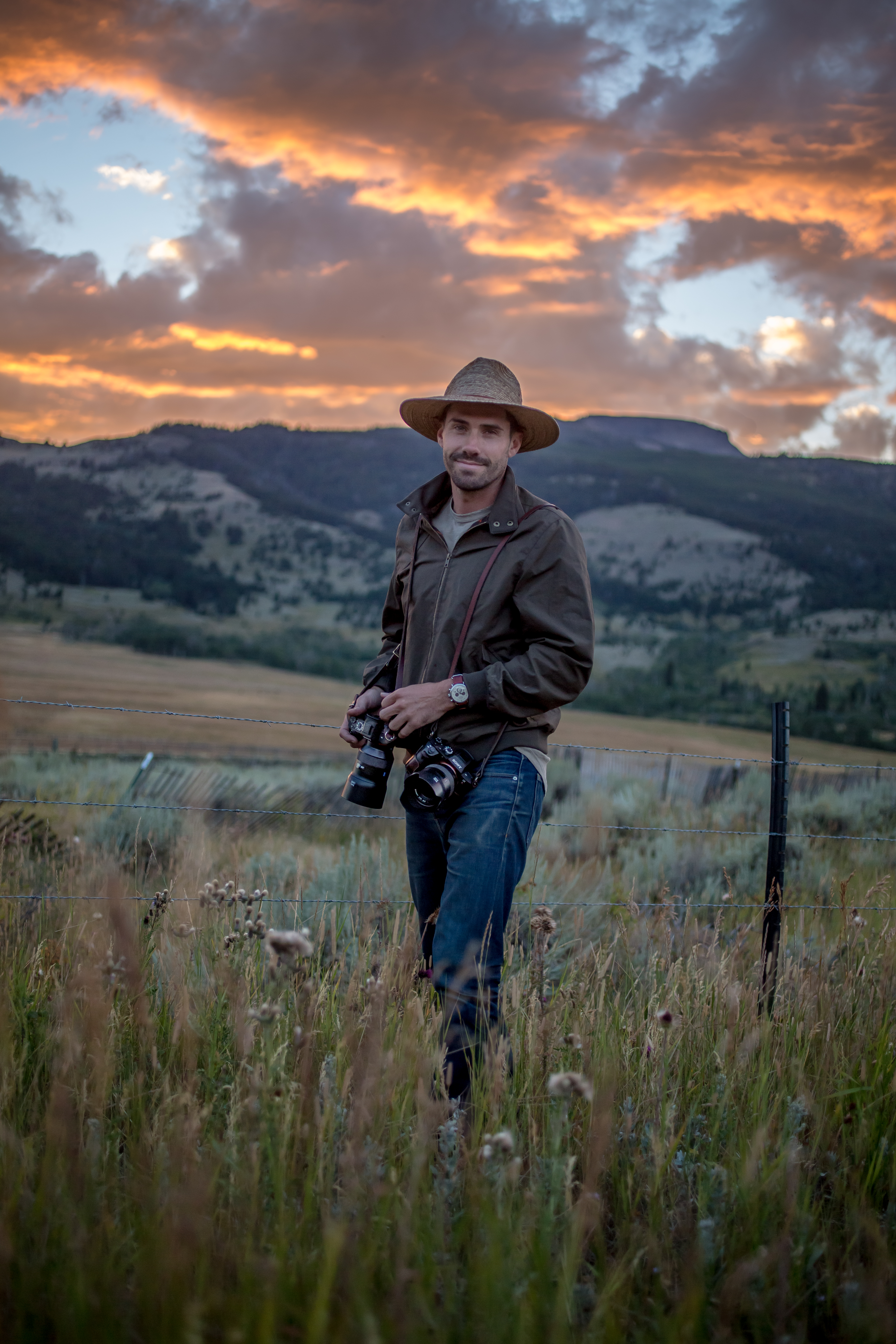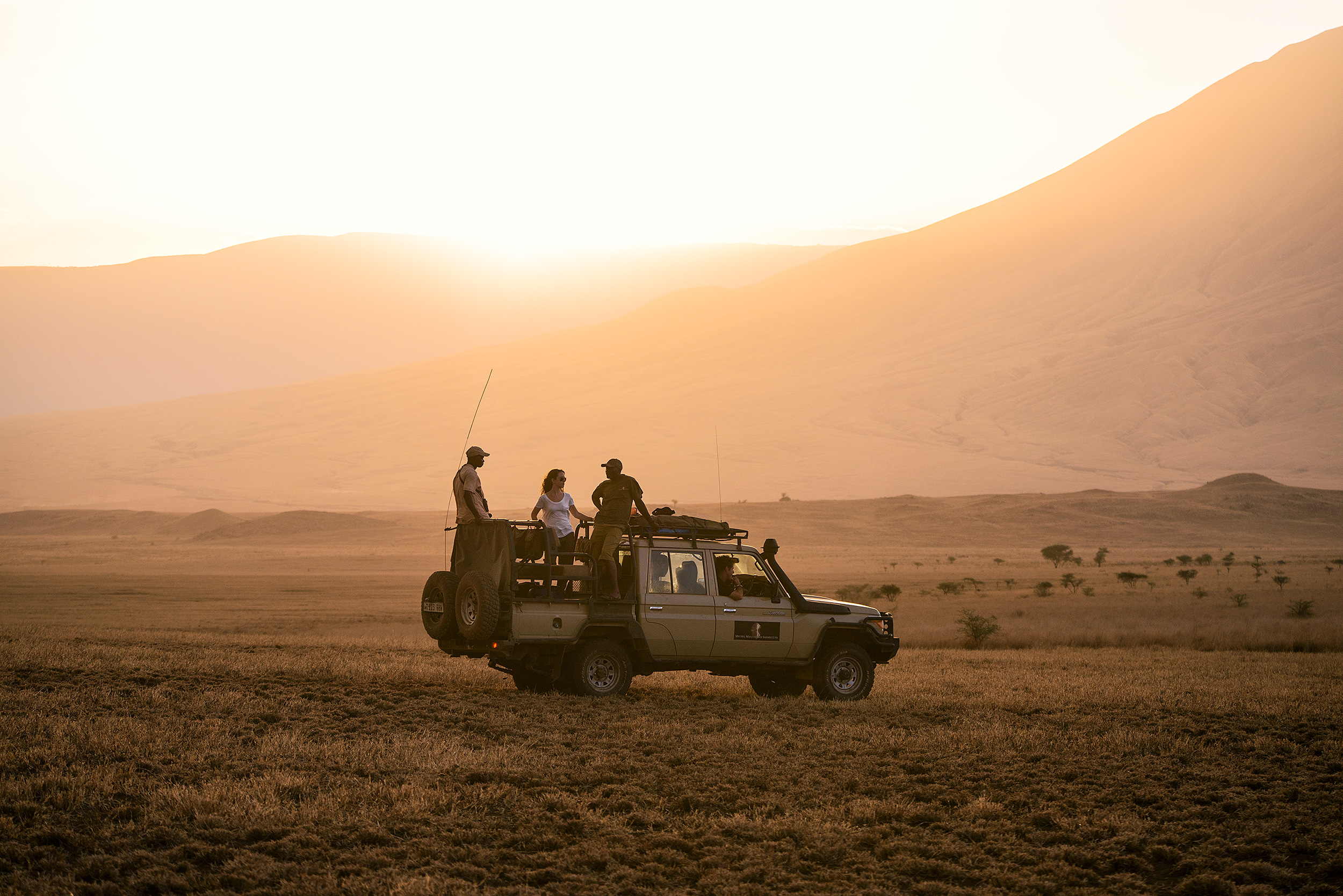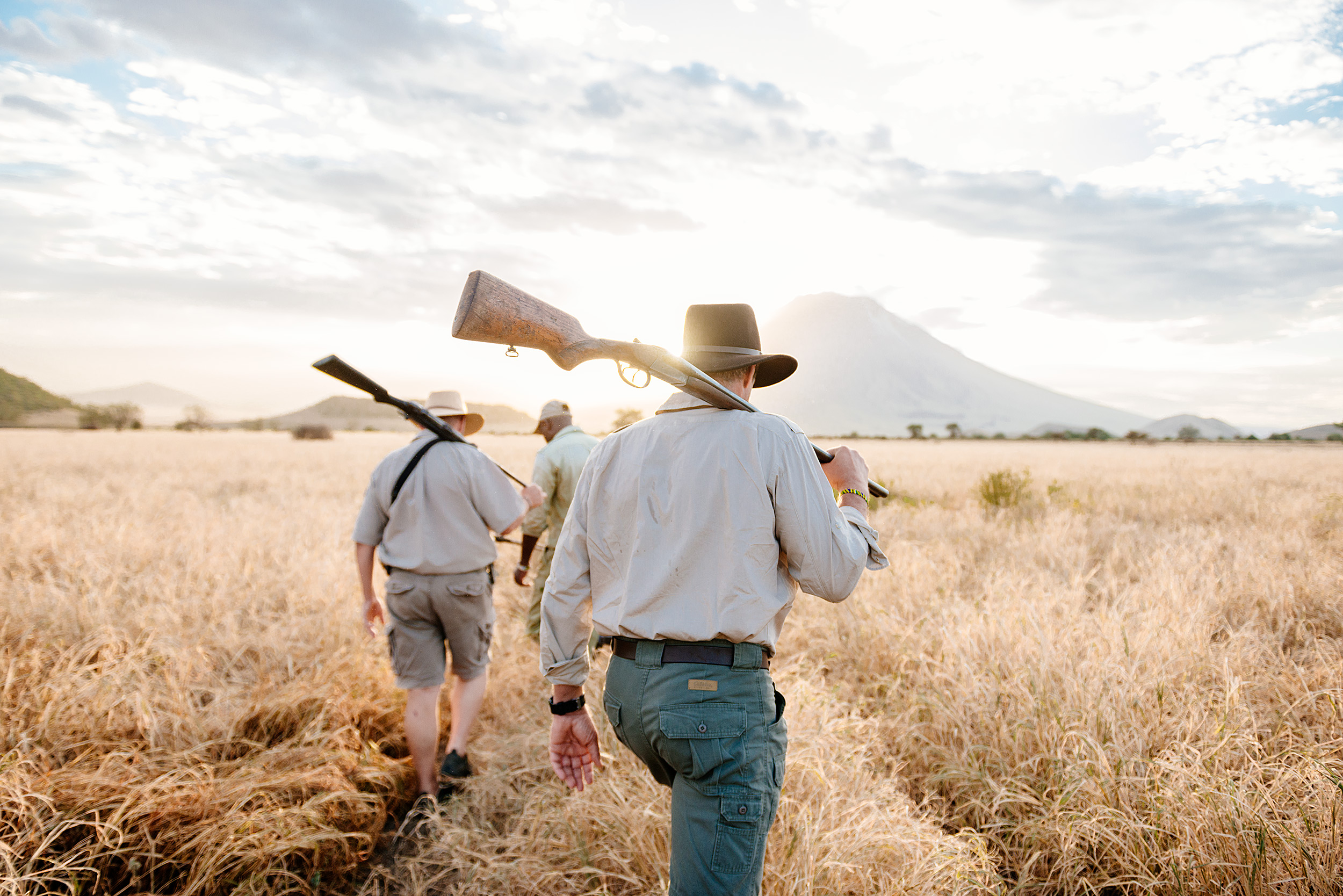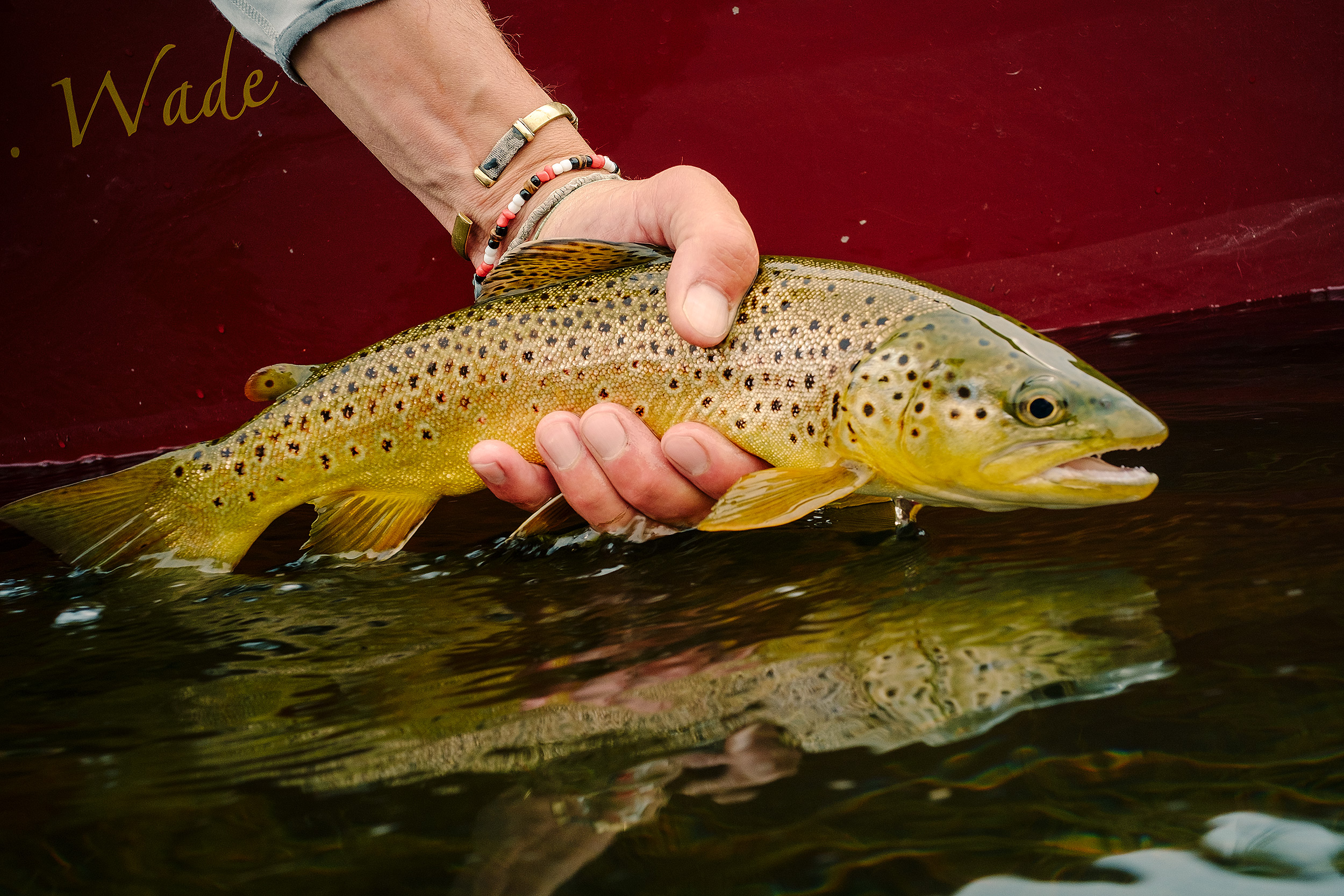On Pursuing Creative Passions and Storytelling: A Conversation with Tyler Sharp of Modern Huntsman
We are all wired to be storytellers. It’s an act of piecing together our lives into a (sometimes) succinct narrative to make sense of things. We use stories to explain decisions we’ve made or experiences we’ve been through. At their peak, they are sources of inspiration, conviction, and encouragement. To say storytelling comes naturally to some people is probably accurate, but chalking it up to natural ability doesn’t quite do the art of storytelling justice. It requires personal experience.
Meet Tyler Sharp. He’s been telling stories with images and/or words for most of his life. To say he is good at what he does would be a two-dimensional statement failing to describe a four-dimensional life. If you’ve been followingNational Geographic, Garden & Gun, Filson, Yeti, or other outdoor brands for the last 5 years, chances are high you’ve seen his photography, editorial, video, or branding strategy. Tyler’s life is deeply integrated with the stories he tells and helps others tell. Spending years in Africa capturing wildlife, and hunting and fishing all over the world are a major part of his personal experiences that are revealed in each piece of work.
Growing tired of the way hunting is often misrepresented, Tyler decided it was time to tell a new story about conservation and its impact on the outdoors. The end result? Modern Huntsman. A book that is dripping with authentic, first hand experiences from Tyler and many other contributors. We sat down with Tyler to learn more about the inspiration behind Modern Huntsman and what a day in the life looks like for an entrepreneur honing his craft of creative style every day.

Cofounder & Editor in Chief of Modern Huntsman
Livingston, MT
I am very curious to hear more about the steps you have taken to get to where you are today. At what point in life did you recognize you wanted to chase all of these creative pursuits?
When I was younger, I was into drawing, painting and creative stuff but it wasn’t really until high school that I got into photography and digital media. I was always frustrated with drawing and painting because I could never produce an accurate representation of what I saw in my head. It was always kind of an illustration or representation. So, when I started working with digital media and learned to work with photographs and manipulate them in a photorealistic way, it opened up a lot of possibilities for me. I entered a couple of art contests and ended up winning a state art competition in Texas and that was when I thought this might be a career I could pursue. I followed that path and ended up going to USC at Los Angeles to study photography, video, and digital media. After I graduated, really through serendipity, I got a job in Tanzania doing photography and film work for a safari company. I was there for five months in the middle of nowhere filming expeditions and hunts and it was a life-changing experience. It didn’t matter how much school I went through because nothing could have prepared me for that. The first iPhone hadn’t even come out yet and the only form of communication we had was a radio at the home base in Dar Salaam Tanzania or satellite phones. It’s really where I started to get a taste of exotic locations and living sort of a “Hemingway-esque” lifestyle. I became addicted to it and I knew that I went down a road that I never could go back on. There was no chance I could go sit in an office after that. That really became a theme throughout my life (much to the frustration of my parents) that I never really wanted to do what other people were doing.
So, when you are offered that job right out of college, was that a tough decision to make or was it something that you really knew you wanted to do?
I always wanted to go to Africa and it’s not something that I had considered as a career path. I’ve never thought I was going to work for Safari company. I didn’t even know that was a thing and I also didn’t know about Dallas Safari Club which was how I made the connection. They were looking for photographers and filmmakers to help them produce DVDs for their clients. Other than the fact that I knew how to use a camera and liked being outside, I had zero qualifications or previous experience. That’s one of the hardest parts in this industry is you have to be published before you can get published. A real Catch-22. So, I just kind of got lucky stumbling into a company that needed help and was willing to hire somebody who wasn’t necessarily the most seasoned filmmaker/photographer.

And since, you’ve really morphed into much more than just a photographer. When did opportunities to work on branding and strategy for companies start popping up?
I think it goes back to the first few forays in Africa. They gave me some equipment and said basically go figure it out. Slowly it started to escalate into different projects from DVD production to content that was a little more story telling. At the time, I didn’t realize the stuff I was doing had separate job titles. In 2012 I started making contacts with folks at Garden & Gun and some people at Filson. In an attempt to shamelessly promote myself and try and land a gig, I would say, “How about rather than hiring three people to do photography, writing and video, why don’t you just hire me because I’ll do all three.” Looking back on that, I think what kind of idiot would take on that much work for that little pay? But I really used that to my advantage to get my foot in the door and develop relationships with different clients. Some clients didn’t really know what they wanted and that’s when I started doing a lot of creative direction. While working with them, I started learning how to do the work of a producer, stylist, and an art director all at once.
Somewhere along the line, I stopped doing work with people who didn’t fit my personal lifestyle. Of course, a lot of times you don’t have a choice, but eventually I decided I didn’t want to do any work if it wasn’t what I really cared about, believed in, or was willing to put on my site. Fortunately, it worked out and now I’m at a point where I’ve been recognized and known for a specific style. I think it really helps to know for yourself what type of person you are, what you are into, and what you stand for. Then, you can focus on applying that to your business and try to align those with your professional virtues as much as you can.
What is the most challenging thing you have done in your career and what did you learn from it?
It’s definitely been Modern Huntsman, partly because I’m so emotionally invested in it. Everything I’ve done in the last 10 or 11 years has sort of been a culmination of all that is Modern Huntsman. I’ve experienced a lot of people react poorly to the fact that a lot of my work has been in the hunting industry. I’ve heard things like, “How can you be over there in Africa filming these jerks killing animals?” They don’t understand the role that hunting plays in conservation and creating funding for local villages, schools, wells, and medical care. It also pays the salaries of anti-poaching rangers that protect animals from different warlords trying to poach for ivory and other things. On the other side, hunters can sometimes lack couth or sensitivity in being able to communicate with non-hunters. It’s very confrontational. There’s been times that when I’ve thought differently than the hunting community, I was labeled as this liberal, communist hippie. So, it’s something that I’ve always really cared about. The conversation between the two hasn’t been productive and it’s always frustrated me.
It’s been an idea that me, Brad and Elliott have literally made it happen from nothing. We’ve had to bootstrap and take on freelance stuff on the side to make it work. We’re blessed to be at a place where people perceive it to be something bigger and more successful than it actually is, but we’re not anywhere near where we should be in terms of hiring people and being able to finance growth. So, it’s been incredibly challenging to wake up every day and know that this is important to work on but not necessarily be paid full-time.

You’ve been at this for 3 years or, so right?
This idea started probably two and a half years ago and we kind of kicked it around for a while. When I started to see things pop up online that were similar enough to give me a scare I came back to my business partners and told him if we don’t do this now, when else are we going to be able to do it? It took us really forcing ourselves into action and that’s when I wrote the script for the Kickstarter film. In late summer, early fall of 2017 we launched the Kickstarter and raised $100k. We put together the first volume and shipped it out in February of this year and sold almost 8,000 copies of Volume 1. We just placed an order for 7,000 copies of Volume 2, and have sold about 4,000 copies of that the past 3 months.
With Modern Huntsman, what is the creative process like? How do you decide what to focus on, how much control you have over each step of the process?
We sort of divide and conquer. Brad is not a hunter but he owned a creative agency in Dallas that did branding, content creation and distribution strategy. He’s coming at this from a marketing and PR perspective, and trying to figure out ways to break into markets where people may wear Filson or Orvis but have never hunted. The goal with that is to make hunting more appealing and accessible to that market. Brad’s also more involved with the brands and organizations that we feel align with our mission.
Outside of that, we are trying to source contributors that are more than just photographers and writers. We’re looking for people with different perspectives but at the same time are thinking about the outdoors the same way we are and ideally, have a voice online. Part of the way I structure the magazine is that a good portion of the contributors get a percentage of sales. It creates incentive to talk about what we’re doing, promote it, post about it online, and share it with people because the more issues we sell the more money they make off their story. In the past, I can remember working with other magazines and not getting paid enough or getting paid way too late. That’s the way that a lot of the editorial world is structured and I just didn’t like experiencing that and wanted to set things up differently.

Where do you hope Modern Huntsman ends up in 5 or 10 years from now? What do you want that to look like?
People liked the first one and they were kind of thinking, “All right, Well, let’s see if they can do it again.” Volume 2 is much better and I can confidently say that. We got some incredible brands involved like Sitka, Yeti, Epic Bars,Chama Chairs and Red Wing boots. I’m hoping it continues to gain traction and people continue to support the magazine itself. As we grow our relationships with the brands, that opens up the digital side of things. We have a web platform where we can showcase photo essays, product features, additional film ideas that we’re helping produce and promote.
We haven’t really announced this yet, but we started a non-profit arm that will be doing events and fundraisers as well as a grant program to give money away to young filmmakers, photographers, and conservationists. There’s also an organization I want to get involved with called Hunters for the Hungry where they teach inner-city kids how to hunt and provide food for their families and in areas where nutritious food is not available.
Big picture, this is absolutely going to grow into more of a multimedia company and ideally one that has some philanthropic efforts. People are much more open and accepting of hunting when it’s tied to food and it would be great if we could use that as a way to actually address some of the hunger issues in the United States.
What motivates you to do what you do? How has that changed over the years?
I’d love to say that I wake up every day and feel amazing and I’m so excited to start working on all this stuff but that’s not true. I feel better today than I did last week, but I was at the end of my rope. I was sleep deprived, stressed out and anxious. I’d been pulling all-nighters trying to get this magazine done and lost my enthusiasm for the project because of the sheer amount of effort and energy and stress to finish it. I’ve had to learn how to recover from that stuff. Fortunately, I live in Montana so I’m able to go outside and be in the mountains or go hiking, fishing, or hunting.
As an outsider, if you look at my website it probably looks like I’ve created a successful photography career, accomplished some things, and have had an interesting life. What it doesn’t show are the 500 projects that have crashed and burned in the last 11 years. I think that having a strong sense of resilience has allowed me to continue to push myself and go after things despite them not working out at times.
I know you referenced that film on my website but when that was made back in 2014, that was really a turning point of mine. That’s when I figured out that if I don’t care about something and I’m not actually emotionally invested in the outcome, it’s harder to be dedicated. Since 2014, I’ve been able to focus on work that I care about and that has given me more motivation and helped me stay the course. If I’m invested in the outcome, well, I’m going to run myself into the ground to get there. But it’s the little things that help keep things going. It’s nice every now and then to get an email or a message from someone about how much we have inspired them and how thankful they are for standing up for hunting and conservation.
How do you deal with and try and balance your life with the pressure you feel from needing to put out content all the time or grow your following on Instagram?
Well, if it makes you feel any better, I don’t feel like I have a balance. I’m really trying to create more balance in my life between, let’s call it a digital and analog life. Being on your phone verses being on your own in the outdoors or running with the dog or whatever it is. I don’t feel like I have a good balance and it becomes a ball and chain. I’m forced to sit in front of the computer and answer emails, edit photos or something else and I got to a point recently where I resented it and still do. So, I’m really trying to find ways where I can take back some of that time. I am not required to be constantly posting on my personal Instagram account and so that has been an area where I’ve felt like I could cut back. I stopped caring and it started to go down and I’ve accepted that. I don’t have the energy at the end of the day to come up with a content calendar and go out and shoot stuff. I would rather be doing something that I feel inspired to do and not obligated to do.
What has been the greatest failure you have experienced up to this point in life and what did you learn from it?
I worked on a project for almost 3 years with the Texas Historical Commission. We were trying to organize a trail ride on the Chisholm Trail, which is a famous cattle trail. At the time these guys were trying to finish placing historical markers along the route and they needed to raise money and awareness about it. So, we had this idea that we could put together a cattle drive from San Antonio to the Red River to help. In 2010 we started and got really close to raising the money we needed but I worked on it full-time for a long time and it totally bankrupted me. The project never happened and I was out of money, destitute, burned out, and having to take stupid photography jobs to pay my rent. It was almost 4 years of work, but once I accepted that the project wasn’t going to happen it was okay. It was a big step forward because it felt like this looming cloud that followed me everywhere. I felt I had this obligation to people to make the project happen and it didn’t happen. And so, we came up with another one and started doing Modern Huntsman.

You must be logged in to post a comment.